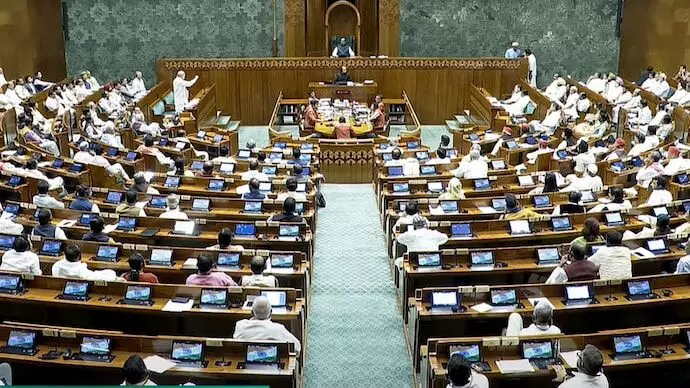Waqf Bachao March in Hyderabad: Congress leaders, Muslim personal law board to protest on April 13
‘Waqf Bachao March’ will be held on April 13 at Dr Ambedkar Statue in Hyderabad
By Kaniza Garari
Hyderabad: ‘Waqf Bachao March’ will be held on April 13 at Dr Ambedkar Statue in Hyderabad by Telangana Congress leaders and other organisations, including members of The All-India Muslim Personal Law Board.
The protest is scheduled from 2 pm to 7 pm near Hussain Sagar, close to Dr Ambedkar's statue. With the approval of the president, the Waqf (Amendment) Act-2025 has come into effect on April 8.
Waqf status
Osman Bin Mohammed Alhajri, in-charge Congress party, Karwan said, “There are needless changes made and elimination of authority in the Waqf Board and Waqf Tribunal. This will result in many properties losing their Waqf status. This will enable unauthorised tenants to claim ownership through adverse occupation.”
Shaik Akbar, in charge of the Congress party Malakpet, said, “Changes in the act have been rejected by the Muslim community. The new law diminishes the authority granted to the Central Waqf Council, Waqf Boards, Waqf Tribunals and Waqf Survey Commissioners. Muslims will lose their property, land and places of worship. There is going to be greater government control, and the legislation is an attempt to undermine societal cohesion.”
The ‘Waqf Bachao March’ in Telangana is due to the drawbacks and needless changes in the Waqf Act, and the protest is aimed at highlighting these to the public:
1. Under any law, trusts established by Muslims shall no longer be regarded as Waqf.
2. It stipulates that a person can only commit his own property to Waqf if he has been an Islamic practitioner for at least five years. For five years after converting to Islam, a reverted Muslim is prohibited from donating his possessions. The Principal Act’s Section 3 (ix) clause (r) also makes it unclear that he cannot leave behind an ancestral or gifted property that he has kept for five years despite practicing Islam. Instead, it states that ‘any person showing or demonstrating that he is practising Islam for at least five years, of any movable or immovable property, having ownership of such property and that there is no contrivance involved in the dedication of such property’ should be used in place of the words ‘any person, of any movable or immovable property.’
3. It states, “Provided that the existing Waqf by user properties registered on or before the commencement of the Waqf (Amendment) Act, 2025, as Waqf by user, will remain as Waqf properties except that the property, wholly or in part, is in dispute or is a government property.” This new provision prohibits the Waqf Board from designating a property as ‘Waqf by User’ based on the nature of use of a property in the future following the enactment of this amended act.
4. Following Section 3, a new clause was added to the Act that gives the State government the authority to appoint an officer higher than the collector to carry out a legal investigation in the event that there is any doubt as to whether a piece of property has been identified or proclaimed Waqf property.
5. Section 3D of the Act adds a new clause that states: Any declaration or notification made about waqf properties under this Act or any prior Act will be null and void if the property was a protected monument or protected area at the time of the declaration or notification under the Ancient Monuments Preservation Act of 1904 or the Ancient Monuments and Archaeological Sites and Remains Act of 1958.
6. The new section 3E states as follows: Regardless of anything in this Act or any other law currently in effect, no land belonging to members of Scheduled Tribes under the provisions of the Fifth Schedule or the Sixth Schedule of the Constitution shall be declared or deemed to be waqf property. This new provision also prohibits the declaration of any land in a scheduled or tribal area as waqf.
7. It allows for the addition of two non-Muslim members to the Central Waqf Council and the State Waqf Board.
8. In order to avoid drawn-out litigation, the Limitation Act of 1963 will henceforth apply to Waqf property claims.
9. The State Waqf Board no longer has the authority to determine whether a certain property is a Waqf or if a Waqf is a Shia or Sunni Waqf following an investigation.
AIMPLB condemns the changes
The All-India Muslim Personal Law Board, which speaks for all Indian Muslim sects, has called for protests and condemned the clauses included in the changes.
The AIMPLB had earlier too asked their members to protest in the streets to show their non-acceptance of the bill.
Congress party moved Supreme Court
Members of the Congress party have disagreed with the bill both inside and outside the Parliament, and members have also moved the Supreme Court against the bill.